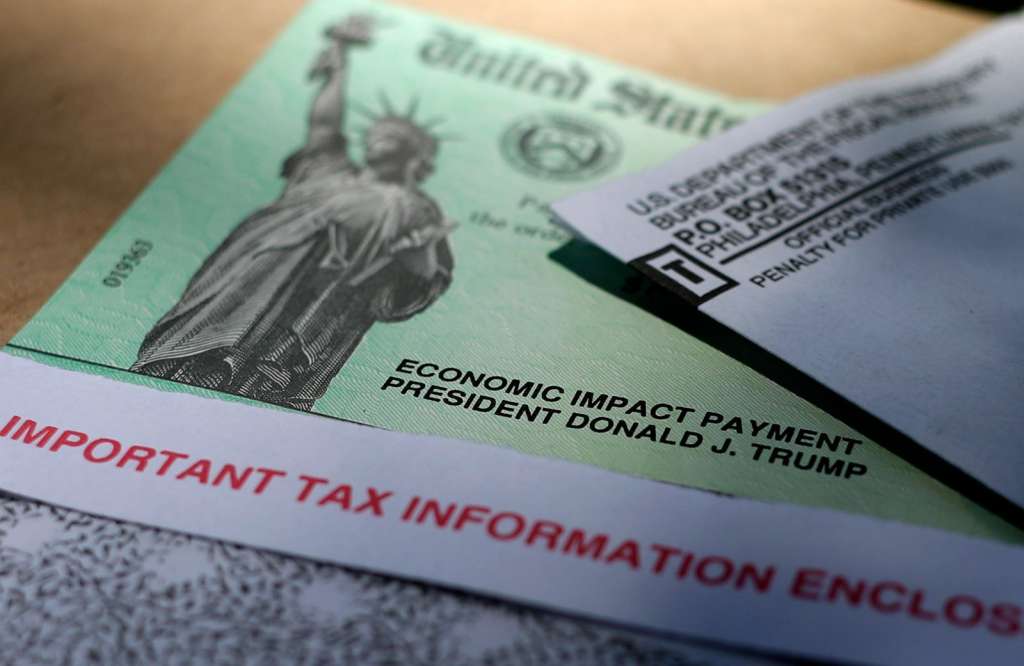(CNN) — At least six states are moving to shield the most recent round of stimulus payments from private debt collectors after Congress failed to exempt the money from garnishment — though it did for an earlier round of payments that were approved in December.
Governors in Maryland, New Jersey and Washington as well as state attorneys general in Massachusetts, Nebraska and New York have taken action in the past few weeks to make sure their most vulnerable residents will receive their money, which can amount to up to $1,400 per person.
But many of the more than 127 million payments that have already been sent by the Internal Revenue Service remain open to seizure in dozens of other states.
Recipients with unpaid credit card or medical bills for which a company has obtained a judgment against the debtor could see the fresh infusion taken from their bank accounts, potentially preventing those in need from getting the emergency cash.
Lawmakers shielded the $600 payments that were approved as part of the December stimulus, but the latest Covid relief bill did not include that protection because of the procedural rules Democrats used to push the bill through the Senate, where no Republicans signed on.
A separate bill introduced in the Senate a week later by Democratic Sens. Sherrod Brown of Ohio, Ron Wyden of Oregon and Bob Menendez of New Jersey would have fixed the problem. But after Republicans blocked the measure from passing by unanimous consent, the bill was not brought to the floor for a full vote before lawmakers went on recess last week. No companion bill has been introduced in the House.
The relief bill passed in last March, known as the CARES Act, also failed to include language protecting the first round of stimulus payments, worth up to $1,200, from private debt collectors. Last summer, another standalone Senate bill that would have shielded the payments had bipartisan support and was passed by unanimous consent. But was never taken up by the House.
A patchwork of protection leaves many vulnerable
The rules may look different in every state, protecting the money from some offsets but maybe not others like child support debts.
“It’s certainly great to see states taking action, but it would have been more expeditious if there was federal legislation,” said April Kuehnhoff, a staff attorney at the National Consumer Law Center.
“And then there’s always a question about enforcement of the state orders and whether relevant parties are complying,” she added.
If a debt collector seizes your money, Kuehnhoff said having legal advice could help navigate any protections that night be in place — but that could be a big hurdle for someone struggling to survive financially.
It could also be helpful to reach out to the bank, some of which have committed to leaving the stimulus money alone. New Jersey Gov. Phil Murphy said in a tweet that said that state secured support from 49 banks and credit unions to protect the payments.
Bank and credit union groups joined consumer advocates like the National Consumer Law Center in sending a letter to Congress last month urging lawmakers to protect the payments.
“While depository institutions and even many debt collectors and buyers believe that economic impact payments should be exempt from garnishment orders, depository institutions are obligated to comply with court orders,” the letter read.
Payments are shielded from other debts
The law protects the stimulus payments from garnishment for other outstanding federal debts, like student loan or tax debt.
For the $1,200 payments authorized by the CARES Act last year, the payment was protected form all debts except delinquent child support. Congress expanded the exclusion for the second round of payments, worth up to $600, making sure the money would not be offset even for owed child support.
But there’s another hurdle for people who were eligible but missed out on getting the earlier payments. An estimated 8 million households that didn’t get the money sent directly to them, most commonly because the IRS didn’t have their correct information on file. Very low-income people are not normally required to file taxes.
Those people are allowed to claim the payment as a credit on their 2020 tax return. But the none of the three Covid relief bills shield those tax credits from back debts — even federal ones. After facing pressure from the National Taxpayer Advocate, the IRS agreed to use its discretion when considering offsetting the stimulus credits — but people who had filed their 2020 tax returns by that point could have already lost out on the cash and won’t have any way to get it back.
The-CNN-Wire
™ & © 2021 Cable News Network, Inc., a WarnerMedia Company. All rights reserved.

